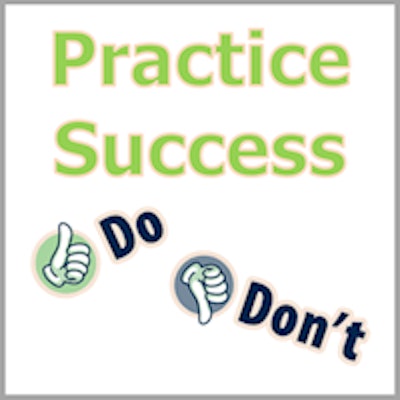
Bring up the subject of communication skills and most of us naturally think about how we speak or write to our coworkers and patients. The counterpart deserves equal attention. People who really know how to listen are empowered by it. They learn more, understand others better, get feedback on the message they're sending, and make a more favorable impression. Good listeners are good practice team members.

Use active listening techniques to ensure mutual understanding. You may be surprised to learn that good listening actually involves a certain amount of talking. Not much. Just enough to let other people know that you are hearing and understanding what they are saying. This technique, known as active listening, encourages meaningful conversation and builds trust -- both of which are essential in interpersonal relations with other team members and patients.

Don't limit your listening to what's said out loud. Another surprising fact is that excellent listeners "hear" what's not actually spoken. It's difficult to explain exactly how to do this, except to say that you should pay attention to the other person's behavior in every detail -- body language, tone of voice, avoidance of subjects, tension, etc. These observations, combined with what you've learned from dealing with others in similar situations, can lead to accurate, sometimes intuitive, conclusions about what the person is thinking though not saying.
Roger P. Levin, DDS, is the chairman and CEO of practice management consulting firm Levin Group.
The comments and observations expressed herein do not necessarily reflect the opinions of DrBicuspid.com, nor should they be construed as an endorsement or admonishment of any particular idea, vendor, or organization.



















